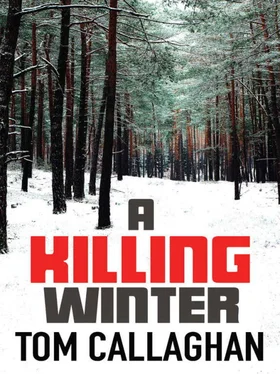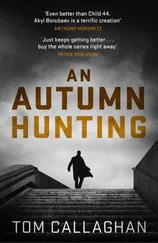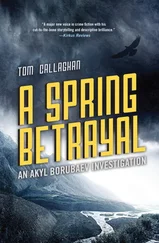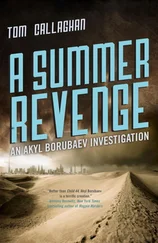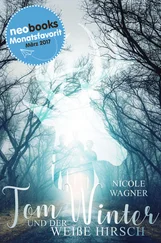The Sverdlovsky District Morgue is a unprepossessing, shabby building, with the ever popular stained-concrete look; suitable accommodation for the dead in a country where it’s difficult for even the living to find a home. Only a small weather-beaten sign reveals its purpose; it’s not a place many people visit, and those who do usually enter feet first.
I’ve spent too many evenings there, under the light bulbs that flicker whenever there’s a drop in power, every sound bouncing off the tiled walls, trying not to think of the heavy scents of a butcher’s shop.
As the ment drove away, the flare of his tail lights spilling over snow reminded me how blood spurted from the throat of the sheep we sacrificed for Chinara’s toi , the commemoration we hold for someone forty days after their death. The imam muttered a few prayers, the sheep shat itself in the yard and, five minutes later, found itself hacked up into chunks.
I’m a city boy, Bishkek born and bred: I think killing an animal is a hell of a way to commemorate the dead, but that’s the way it’s always been done in the villages.
I put thoughts of butcher’s knives to one side, and pushed through the swing doors. The business end of the morgue is actually underground, down a flight of broken-tiled steps. There’s a long emerald-green stain against one wall, where last winter’s snows broke in, probably looking for warmth. Every other light fitting lacks a bulb, but there’s still enough light to reflect off the metal doors at the corridor’s end.
I kicked the worst of the snow off my boots, grateful that there was no babushka to scold me for making a mess on her floor, and took my last deep breath.
‘Inspector,’ Kenesh Usupov muttered, not looking up from the shapeless mass on the steel table in front of him, strip lights glinting off his rimless glasses, ‘I suppose you’ve come about the woman? Five minutes, I’m afraid, I’m just finishing off this krokodil .’
I winced, noticing the smell of iodine in the air, overwhelming the usual odours of blood, raw meat and shit. I’ve seen some horrible things, from babies whose parents broke every bone in their body to grannies raped and kicked to death for their two hundred som pension. But a krokodil is a vision from hell.
Krokodil is the latest drug craze from Mother Russia, cheaper and much stronger than heroin. You make it yourself at home, using over-the-counter medicines like codeine, mixed and cooked up with iodine, red phosphorus from the striking edge of matchboxes, a dash of gasoline, and whatever else you can lay your hands on. Poison, simple as that.
Krokodil gets its name from the way your skin turns green and scaly where you inject, as infection and gangrene set in. Your flesh starts to die and rot almost at once, peeling away and leaving deep, unhealing sores that gnaw through tissue and muscle down to the bone.
I’ve seen addicts with no flesh on their arms, the ulna and radius bones exposed and grey-white, women with holes in their legs you could put your fist in, men whose cheeks have split apart as their gums turn to a bloody mash. The reek of iodine saturates clothes, skin, hair, even the walls of the shitty apartments and shooting galleries where the addicts cook up non-stop for days on end. Swim with the krokodil and you’ve probably got six months to live, if you can call it that.
With Kyrgyzstan being so close to Afghanistan and a ready supply of cheap heroin, krokodil hasn’t eaten us the way it’s devoured addicts from Moscow to Vladivostok, but it’s only a matter of time.
‘A bad one?’ I asked, taking care not to look.
‘As opposed to?’
‘You know what I mean. Bad.’
‘Not really. Heart attack took this one. Hardly any necrosis at all. Except for his fingers. They’re all gone, just raw stumps with the bones jutting out. Oh, and his penis. Couldn’t take a piss, even if he’d had any fingers left to hold his cock. Of course, couldn’t work a syringe either in that state, someone else must have spiked him, got the dose wrong.’
‘Or right, maybe. One less vein to feed, all the more for me.’
‘It’s possible, Inspector. But impossible to tell.’
The iodine made me gag, knowing I was sucking rotting tissue into my lungs, but I’d never hear the end of it from my colleagues if I started wearing a mask at autopsies.
‘I could come back. When you’re ready. For the woman.’
‘Don’t worry, Inspector, this one’s going nowhere, his career’s reached a dead end.’
That makes two of us, I thought, as Usupov threw a threadbare cotton sheet over the remains in front of him. I tried not to notice how the material immediately started to soak up some horrible fluid, and followed Bishkek’s Chief Forensic Pathologist to the autopsy table at the far end of the room.
‘Your girlfriend. Too good-looking for you, way out of your league. Or she was,’ Usupov announced, pulling open one of those oversized filing cabinets where he keeps the new and not so newly dead. The metal runners screeched like a razor scraping rust, and a gust of cold air wafted out. As always, the thought flashed through my head that the corpse wasn’t really dead, and had just breathed out.
There are nights when I can’t sleep, when my eyes feel blistered and cracked from the things I’ve witnessed, when the dead parade past me like fashion models on a macabre catwalk. I pressed my tongue against the roof of my mouth, to counter the worst of any smell, and intruded once more upon the girl’s death.
One of Usupov’s assistants had stripped her bare, to pass on her clothes to forensics or, more likely, to sell in the bazaar. Since we declared independence from the Soviet Union in 1991, we’ve endured the corruption and greed of various governments who’ve filled their pockets. Everyone looks out for themselves, making a few som where they can. And if that means selling the clothes of the dead, well, we’re a poor country.
The girl’s face was uncovered, ice-white, peaceful. The purple bruises of lividity – the smearing under the skin where any blood left in a body slowly settles, dragged down by gravity – were already beginning to show around her hips and back. I could see the wear and tear of daily life on her body; an appendix scar slipping down towards her groin, old nicks and cuts on her hands, a childhood graze stencilling one knee.
Naked, she looked younger, more vulnerable, one of life’s natural victims, born to end up here, unaware of my gaze or Usupov’s instruments. The sort of woman who continually walks into doors, especially when the doors have been drinking, until one hits her too hard and shuts her out of life.
But she looked more at rest than Chinara had, when her sisters wrapped her in a burial cloth and placed her on the right side of the yurt, the woman’s side, for her last night on earth before the men carried her down to the graveyard overlooking the valley.
I could smell her guts, the reek and iron taste of her as if I’d had my head between her legs, lapping at her during her period, and I had to swallow hard. Then, reluctantly, I looked at the wound.
‘My God,’ I muttered.
But if there is a God, I was pretty sure he was off duty when this had been done.
‘Interesting, isn’t it?’ Usupov said, as calmly as if he was admiring the bouquet of a fine wine, or appreciating the craftsmanship of a hand-blown glass vase. ‘I honestly can’t say I’ve ever come across anything quite like this before.’
Most wounds I see are haphazard, tentative, a prod here, a nick there, taking several terrified attempts before they finally kill. Or they’re driven by ferocity, a hatred boiled up out of cheap vodka, kids who never stop crying, a wife who long ago stopped caring. The cuts are random, ripping and slicing, the blade or bottle or axe hacking away, the work of amateurs, of people who woke up that morning never expecting to change their life or steal another’s. This one was different. Determined, accurate, precise.
Читать дальше
